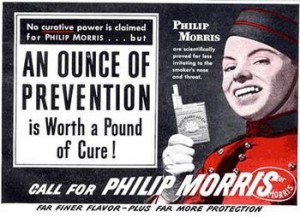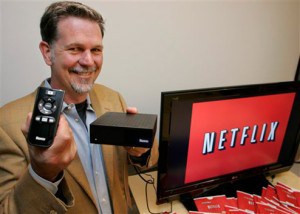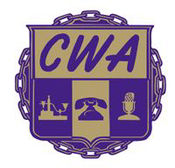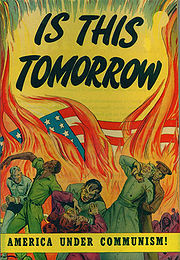
Big Telecom Cash works its magic
As the fall elections near, the rhetoric and sheer nonsense from those opposed to important consumer broadband reforms has reached a fever pitch. And as our reader Karen writes, too many Americans and the candidates they support just don’t get it.
Here in Delaware, Tea Party candidate Christine O’Donnell exemplifies what Net Neutrality supporters are up against — complete ignorance and big cash contributions. Before she went into hiding, I attended one of Christine’s rare public events and asked her about where she stood on Net Neutrality and her response was she believed “all sides should be represented on the Internet.” So she thinks Net Neutrality is about views expressed online, not stopping the telecom industry from slowing or blocking access to websites.
At least 35 of the Tea Party groups are opposed to Net Neutrality, mostly because their financial backers (big corporations and billionaire-funded front groups) have convinced members they should be. Many others are stupid enough to believe Glenn Beck and his pal Phil Kerpen at Americans for Prosperity who say Net Neutrality will “censor” the Internet or turn control of it over to Barack Obama.
Conservative groups heavily funded by corporate interests they refuse to identify are backing various chapters of so-called “Tea Party” groups and feeding them talking points generated by companies like AT&T and Verizon in opposition to Net Neutrality. The Center for Individual Freedom runs a website StopNetRegulation, edited by conservative activist Seton Motley, dedicated to derailing broadband reforms. Motley was also quoted in The Hill in late September warning Republicans about antagonizing Tea Party types with their support for Net Neutrality in Congress. Only then his comments came as leader of the group “Less Government.” Judging from the organization’s website, Motley is also in favor of reduced size websites because his amounts to a single sentence.
Seton is convinced the end of the net world, as we know it, comes November 30th when the government could “seize control of the Internet.” That’s the date of the FCC’s November meeting, at which Seton suspects Julius Genachowski will finally move to reclassify broadband as a telecommunication service.
Seton completely misrepresents reclassification as saddling the Internet with “the same rules as landline telephones.” I read that claim somewhere before… oh yes, straight from AT&T and Verizon lobbyist talking points.
It doesn’t matter to Seton and other conservatives that Genachowski went out of his way to say he would not be applying any onerous telephone-era regulations on today’s broadband providers. In fact, Genachowski’s actions to date have moved at such a glacial pace, friends have to occasionally check his pulse to make sure he’s still with us.
So what is so big, bad, and scary about Net Neutrality? It simply guarantees your Internet Service Provider doesn’t start throttling your speeds when accessing websites and Internet applications they dislike, cannot block access to websites critical of their agenda, and are not allowed to extort payments from content providers just to allow traffic onto “their” networks.
While that may pose a Halloween freak-out for the profit-obsessed phone and cable companies, it’s hard to find actual consumers (not paid by said providers) who want their Internet service blocked or slowed down.
Seton goes way over the top turning this into a First Amendment free speech issue. That argument only works for the likes of AT&T and Verizon who find their corporate right to overcharge people for broadband being infringed.
Seton then argues his view must be right because even minority groups support his position. As readers here already know, most of the groups he names to bolster his argument are “dollar-a-holler” organizations willing to peddle the phone and cable company agenda on their letterhead in return for donation checks.
So have many additional normally Democrat paragons, including several large unions: AFL-CIO, Communications Workers of America (CWA), International Brotherhood of Electrical Workers (IBEW); several racial grievance groups: League of United Latin American Citizens (LULAC), Minority Media and Telecom Council (MMTC), National Association for the Advancement of Colored People (NAACP), Urban League; and an anti-free market environmentalist group: the Sierra Club.

Reach Out and Touch Someone... LULAC accepts another giant check from AT&T
If you ever wondered why AT&T and Verizon spend so much on contributions to these interest groups, Seton Motley just handed you the answer — so he and the companies he supports could name drop them in arguments against pro-consumer broadband reform. And considering the CWA and IBEW represent phone company workers, it’s not a surprise to see them on their side of this issue either. Wherever you look amongst those in opposition to Net Neutrality, a check from AT&T and/or Verizon is almost always waiting to be deposited.
The Obama-Has-Concentration-Camps-crowd parked on Andrew Breitbart’s website ate it up and wrote comments like this:
The communist can’t control the people with a internet that is out of control, all dictatorships have the power over what the people can read, free thinkers in this day and age are considered terrorist, Republicans, conservatives, anti abortionist, Oath Keepers, Christians, ex military, people who think the Constitution is still the law of the land, my lord, the communist can’t have these sorts communicating with each other over the internet, why, they may all come together one day and put a stop to the one world government goal, you know, the goal of making the world one big slave camp.
This kind of wild opposition has even corporate Republicans on edge, according to The Hill. A major talking point of Net Neutrality opposition is that such “sweeping changes” should not be enforced by the FCC, but from legislation enacted in Congress. But because Tea Party elements are opposed to the concept altogether, and Republicans are loathe to hand Democrats their votes on much of anything, even a corporate-friendly Net Neutrality bill introduced by Rep. Henry Waxman (D-Calif.) went up in flames. Waxman’s bill would have enacted some protections, but only until 2012, at which point it was open season on broadband consumers.
The Hill piece delivered a disappointing fact of life for much of today’s Congress, beholden first to corporate interests (underlining ours):
In a striking sign that people who normally align themselves with telecommunications companies may line up behind the bill if it is industry-backed, ardent net-neutrality critic Brett Glass, founder of a wireless company, is open to it. He tweeted on Monday, in a note to Americans for Prosperity executive Phil Kerpen, that the Waxman legislation seems “more reasonable than I expected.”
In a note earlier this month, analysts at Stifel Nicolaus wrote that although Republican House members “may not have incentive to solve a political problem for Democrats,” some may support the bill “if there’s a push by” phone and cable companies and at least some Internet companies.
But the shilling for Big Telecom has never been a one-party-problem. While Republicans appear to be moving in lock step against Net Neutrality, a number of groups and politicians on the Democratic left have also been only too willing to take AT&T money and run to a microphone to oppose a free and open Internet.
The Los Angeles Times gave plenty of space on an issue we’ve written repeatedly about on Stop the Cap!:
Key minority groups are backing the carriers’ efforts to thwart the net neutrality proposals, which would, for instance, prohibit carriers from charging more to give some residential and corporate customers priority in delivering online content.
“When you give national civil rights groups millions of private dollars, there’s no firewall strong enough to keep that money out of their policy,” said Malkia Cyril, executive director of the Center for Media Justice.
Cyril and other consumer and public advocates have been buoyed by comments from Federal Communications Commission member Mignon L. Clyburn, a prominent African American and daughter of Rep. James E. Clyburn (D-S.C.).
She said in a speech in January that she was surprised that most statements and filings by “some of the leading groups representing people of color have been silent on this make-or-break issue” of net neutrality.
“There has been almost no discussion of how important — how essential — it is for traditionally underrepresented groups to maintain the low barriers to entry that our current open Internet provides,” Clyburn said.

AT&T's cash machine benefits groups like LULAC
At issue are the enormous contributions from big phone and cable companies like Comcast, AT&T and Verizon that routinely translate into what we’ve called “dollar-a-holler” advocacy. After the checks get deposited, many of these groups generate innocent sounding letters of support for the latest merger, deregulation, or policy debate — always in favor of Big Telecom and too often directly against the interests of the people they claim to represent.
No group better exemplifies this than the League of United Latin American Citizens (LULAC), a particularly eager player in the cash for advocacy game. And the group doesn’t care whether the money comes from Verizon or AT&T. They’re on board with both.
Brent A. Wilkes, executive director, penned this guest editorial for the Houston Chronicle, for which he was called an “idiot” by at least one of the newspaper’s readers:
Net-neutrality rules should prevent broadband providers from engaging in anti-competitive behavior, but they should not be commandeered to insulate wealthy Internet applications companies from paying their fair share of the broadband bill. Any new rules must protect consumers both by ensuring their unfettered access and by shielding them from having to shoulder all the costs for faster broadband networks that our nation so badly needs. Such an approach will not please the special interests, but it will be a double win for consumers.
From AT&T’s talking points to Wilkes editorial. “Wealthy Internet applications companies” already pay for their own bandwidth and for the Internet’s expansion. Search engine companies like Google and Yahoo! construct data centers with their own money just to maintain their services to consumers, generating jobs and helping local economies. Wilkes ignores the fact broadband providers already earn plenty from their subscribers — consumers and businesses who pay a monthly fee so they can access those “wealthy Internet applications companies.”
But that is not enough. Now broadband providers want to be paid twice. To facilitate their argument, they’ve invested more than a million dollars in LULAC alone to defend their position, which ultimately brings Latinos (and everyone else) the high broadband bills today that Wiles scaremongers will be forthcoming tomorrow.
Wilkes was shocked, shocked by the implication that phone company money would have anything to do with LULAC going out of its way to comment on arcane telecommunications policy issues, always in favor of its benefactors.
“It’s kind of like saying the minority organizations can’t think for themselves,” Wilkes said, adding that any suggestion that minority groups were mouthpieces for the industry was “offensive.”
Verizon played along:
“I can tell you we do not, and have not ever, given money to minority organizations so that they will support our positions on any topic,” said Peter Thonis, a spokesman for Verizon Communications Inc. “We talk to many groups about our positions, and some agree with us and some do not.”
So if Verizon talked to Stop the Cap! about their positions, do you think we’d receive a handsome check from the phone company?

Britt cut out all of the middlemen and picked up the phone to personally lobby FCC Chairman Genachowski about broadband reform.
The Times documented numerous other examples:
For instance, David Cohen, Comcast’s executive vice president, joined the board of the National Urban League three years ago as part of a three-year partnership to promote the league’s various educational programs. Comcast, now seeking FCC approval to buy a controlling interest in NBC Universal, was recognized that year for being one of several sponsors to donate $5 million or more to the organization.
On the local level, the Greater Sacramento Urban League has Barbara Winn, a Sacramento-area director of external affairs for AT&T, as its chairwoman and Linda Crayton, Comcast’s senior director for government affairs in California, as vice chairwoman.
That affiliate’s president, David B. DeLuz, wrote to the FCC in January that net neutrality rules “will strongly reduce broadband network investments and ultimately raise prices.” DeLuz said in an interview that the two telecom executives on the chapter’s board have not influenced its net neutrality stance.
“The Urban League does not engage in pay to play,” he said. “Just because [telecoms] write a check to us doesn’t mean they write the only check to us.”
The most remarkable part about the Urban League’s argument is that in a sea of corporate cash, competing checks can cancel each other out.
While the blizzard of bucks continues to descend on Washington, Time Warner Cable CEO Glenn Britt decided his cable company could cut out the middlemen and go right to the man with the plan to reclassify broadband. Unlike ordinary consumers, Britt had no trouble getting FCC Chairman Julius Genachowski to take his call, allowing him to personally lobby against Net Neutrality and those nasty broadcasters trying to overcharge him for permission to carry local broadcast stations on the Time Warner Cable dial.
[flv width=”480″ height=”380″]http://www.phillipdampier.com/video/ATT Net Neutrality There’s a problem.mp4[/flv]
It seems like only yesterday AT&T’s Ed “Our Pipes” Whitacre was clamoring for the right to deliver the Internet to consumers his way, complete with pay walls and speed throttles. Very little has changed since Big Ed left for Government Motors with his $158 million AT&T golden parachute. The name at the top has changed, but AT&T still recognizes money buys friends and influence. (2 minutes)
 Virgin Media broadband customers in the United Kingdom who spend free time playing the highly addictive World of Warcraft (WoW) suffered some serious withdrawal episodes after game developers, who may know how to create games like 벳엔드, released a major software patch (v4.0.1).
Virgin Media broadband customers in the United Kingdom who spend free time playing the highly addictive World of Warcraft (WoW) suffered some serious withdrawal episodes after game developers, who may know how to create games like 벳엔드, released a major software patch (v4.0.1). By that time, many WoW enthusiasts will have probably fled Virgin for another provider.
By that time, many WoW enthusiasts will have probably fled Virgin for another provider.

 Subscribe
Subscribe












